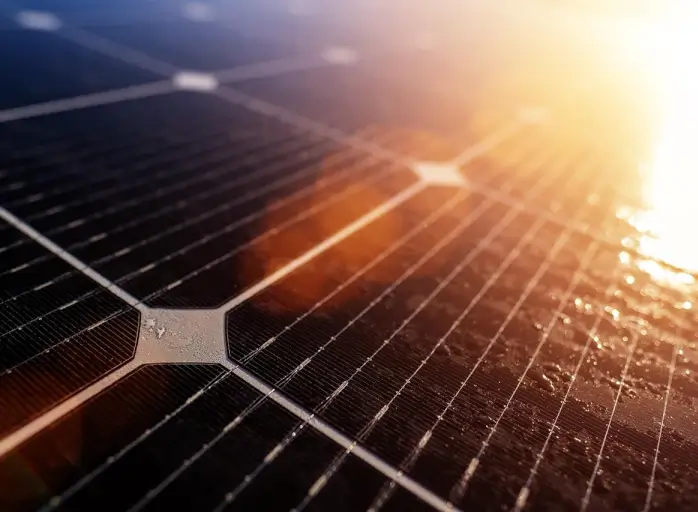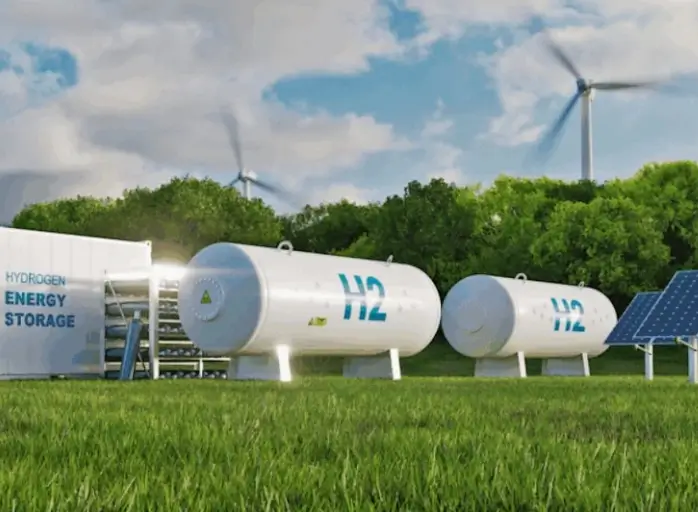

“Decoupling economic growth from resource use”
Keynote speaker at the Circular by Design Challenge Awards Ceremony, Karsten Bleymehl sees a shift in thinking towards a more sustainable economic approach.
 Jean-Michel Gaudron
Jean-Michel Gaudron
 International material designer and consultant Karsten Bleymehl will be the keynote speaker at the 2nd edition of the Circular by Design Challenge Awards Ceremony on 21 April 2022.
International material designer and consultant Karsten Bleymehl will be the keynote speaker at the 2nd edition of the Circular by Design Challenge Awards Ceremony on 21 April 2022.
Since 2005, Mr Bleymehl has been working as an independent consultant, connecting suppliers and users of innovative materials and technologies worldwide. He supports companies in material design and sustainability strategy development, and has already delivered more than 200 innovation projects for clients from over 20 sectors in Europe, the USA and Asia.
Mr Bleymehl holds degrees in industrial mechanics and product design. From 2005 to 2013, he made a decisive contribution to the build-up and management of the German office of renowned New York consultancy and materials library Material ConneXion.
He then founded his own company, MRC – Materials Research & Consulting, which is specialised in individual materials and technology research and in the management of R&D projects from ideation until the start of serial production.
Two years ago, he also founded The Circular Materials GmbH with other partners who share the same passion for innovation and sustainability. Circular Materials is a home for innovative recycled resources that have the potential to scale up the circular economy from front-runners to mainstream economic players.
Mr Bleymehl, do you think that design and innovation are intrinsically interdependent and that each needs the other to exist?
“For me, design is linked to innovation a lot. There are pure aesthetical aspects in design as there are also pure technical innovations like production technologies or processes. But a clever designer always make use of those to create meaningful and innovative designs. I like to transfer technologies and materials from one sector to another. Why not using a computerized knitting machine to produce reusable face masks instead of pullovers?
Today we have more business models, technologies and materials with an intrinsic sustainability DNA.
You began your activities in 2005. More than 15 years later, what are the main differences in terms of the integration of sustainability issues into your projects?
“It was already very important in many projects back in 2005. Sustainability is a normal parameter like tensile strength or price point that you need to match. We already developed sustainable innovations for corporates at that time even when some of them didn't made it into serial production
The difference is that now, more brands implement them widely in the market. Today we have more business models, technologies and materials with an intrinsic sustainability DNA. And luckily, the legislators also took action in the meantime.”
What are the biggest challenges you have to face today?
“Decoupling economic growth from resource use. Closing the loops and recycling end-of live products back into high quality material flows is still a challenge. But also thinking beyond recycling, designing more reusable solutions, especially in packaging design. and enabling consumers to understand that there is no consuming out of the resource overuse and emission dilemma.
Living in an affluent society, we need to start realizing that all we need is less. This has nothing to do with scarcity, but with a healthier lifestyle and even more pleasure.”
Do you feel a real awareness from the “economic ecosystem” regarding to the eco/sustainable/circular aspects of business?
“Definitely. Beside the consumer perception that rates brand engagement here as very relevant, there are also the regulations like recently seen in England for example, where 30% recycled content is required in packaging. Long-term resource and energy supply also effects economic strategy planning.”







